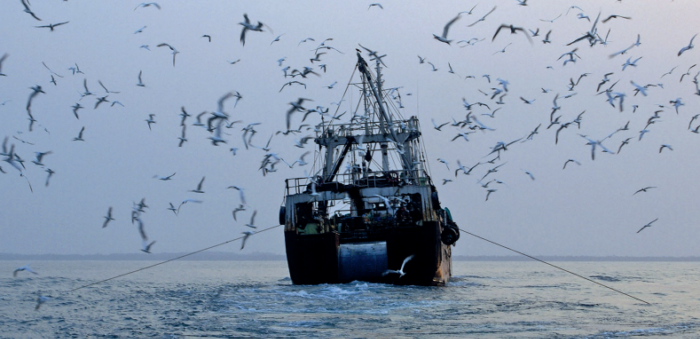According to the Environmental Justice Foundation (EJF), around 90% of Ghana’s industrial fishing fleet is linked to Chinese ownership. However, Ghana’s laws forbid any foreign ownership or control of vessels flying its flag. Thus, EJF calls the Chinese and Ghanaian governments to work together to eliminate illegal fishing practices in Ghana.
Ghana forbids any foreign ownership or control of vessels flying its flag, to ensure that the financial benefits from industrial fisheries go directly to Ghana.
[smlsubform prepend=”GET THE SAFETY4SEA IN YOUR INBOX!” showname=false emailtxt=”” emailholder=”Enter your email address” showsubmit=true submittxt=”Submit” jsthanks=false thankyou=”Thank you for subscribing to our mailing list”]
Despite this law, many foreign companies, mainly Chinese, operate through Ghanaian ‘front’ companies, to import their vessels and register and obtain a licence. As EJF notes, in 2015, 90% of industrial trawl vessels licensed in Ghana were built in China, and 95% were captained by Chinese nationals.
The result is a complete lack of transparency as to who is responsible for illegal actions, and who controls and benefits from Ghana’s industrial trawl fleet.
Now, the foundation calls the two countries to collaborate in finding a solution to this problem.
It is positive that China has already started attempts to tackle illicit activities of Chinese operators in West Africa, as it withdrew subsidies and fishing licences from three Chinese companies involved in illegal fishing in the region. Now it can spread this progress in Ghana.
In addition, both China and Ghana can secure economic and environmental benefits by committing to ensure transparency. In order to achieve this, lists of fishing vessels licensed to fish under Ghanaian and Chinese flags should be published, along with details of all cases of illegal fishing and the sanctions imposed, EJF urged.
Finally, an important aspect that the two government must work on the end of ‘saiko’ fishing. With this type of fishing, industrial trawlers target fish such as the small pelagic species that are a important for local communities. The catch is then transferred at sea to specially adapted canoes.
You can see more details in the following PDF































































